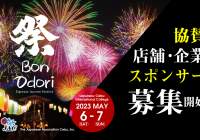On October 29, 2024, Lapulapu-Cebu International College held the MUSUBU event, gathering approximately 540 students, esteemed dignitaries, and cultural advocates for a memorable day of cross-cultural celebration. Consul General of Japan, Mr. Hideake Matsuo, attended as a guest of honor, representing Japan’s commitment to cultural exchange. Dr. Grace Gorospe-Jamon, President of Lapulapu-Cebu International College, also welcomed a diverse group of participants, including senior high school students from Cebu’s prominent schools: Proverbs Ville Academy Foundation, Marie Ernestine School, Science and Technology Education Center, Einstein School, Bankal National High School, and Advanced Institute of Technology. Sponsored by influential figures like Mr. Ebihara of PTN Travel Agency etc., MUSUBU highlighted the deep value of cultural exchange in connecting communities.
The Japanese Entertainment and Exchange with Pinoy (JEEP) organization, which organized the event, was founded in June 2023 and officially recognized in August 2023 under the guidance of Mr. Tatsuto Toyota. Dedicated to fostering Japan-Philippines relations, JEEP provided a stage where students and attendees experienced cultural performances, exchanged ideas, and deepened their appreciation of each other’s heritage.
Spotlight on Student Voices and Future Educators

Two Lapulapu-Cebu International College (LCIC) students, who emceed the MUSUBU event, were interviewed by Cebu Trip, capturing their insights and enthusiasm for the event. They shared how the event name, “Musubu,” means “to connect,” and highlighted the aim of fostering collaboration between Japanese and Filipino cultures. The students expressed excitement about inviting senior high school students from six local schools — allowing these guests to experience firsthand the kind of cultural exchange LCIC and JEEP (Japanese Entertainment and Exchange with Pinoy) promote.
In their interview, they also explained the significance of integrating both Japanese and Filipino cultural performances. Traditional Japanese dance and music, performed on the koto, showcased Japanese heritage, while Filipino performers contributed with Sinulog and Tinikling dances, symbolizing an exchange of cultural traditions that connected everyone in attendance. The students concluded by noting their gratitude for the Consul General’s attendance and the support from both the Japanese and Filipino community.
Japanese Cultural Showcase: Traditional Art Forms

Central to the event were performances by HANAYURA, a Japanese performance team established in 2017 by Ms.Yuki Yamane to celebrate and preserve Japanese traditional dance and music globally. Led by skilled artists such as Ms.Shoko Kikutake, the team captivated the audience with Nihon Buyo, a traditional Japanese dance interwoven with Japan’s history. Known for its poetic elegance, Nihon Buyo combines expressive gestures, stylized movements, and narratives, often associated with kabuki theater. Dancers in elaborate costumes, accompanied by the shamisen and other traditional Japanese instruments, brought timeless stories to life, highlighting Japan’s cultural richness and artistic refinement.

Adding to this rich cultural experience was a performance on the koto, Japan’s iconic 13-stringed instrument. Originating in the 7th century, the koto’s harmonious tones embody the depth of Japanese musical heritage. Played using finger picks, it conveys profound emotions and symbolizes Japan’s artistic sensitivity, resonating deeply with audiences across cultures.
Filipino Cultural Heritage: Sinulog and Tinikling
In an inspiring exchange, Filipino performers showcased the Philippines’ own rich traditions. The Sinulog Dance, a lively performance honoring Santo Niño, exemplified Cebu’s spiritual and historical identity. Characterized by its signature two-steps-forward, one-step-back rhythm, the dance embodies Cebu’s resilience and faith, with dancers adorned in vibrant costumes moving to the pulsating beats of traditional drum music.
Alongside this, the Tinikling Dance offered a thrilling display of agility and cultural symbolism. Reflecting the movement of the tikling bird, dancers navigated clapping bamboo poles, capturing the audience’s attention with their skill and grace. These performances celebrated the Philippines' connection to nature and agricultural traditions, symbolizing the Filipino spirit’s enduring agility and adaptability.
Fostering Unity Through Cultural Exchange

MUSUBU served as more than an event; it was a powerful reminder of cultural empathy, collaboration, and respect. By bringing Japanese and Filipino communities together, the event highlighted a shared appreciation for both heritage and modernity, sparking meaningful dialogues and fostering deep connections. As the performances drew to a close, the collective energy in the room was a testament to the event’s success in building bridges of understanding.
The MUSUBU event stands as a testament to the enduring power of cultural exchange, nurturing ties that go beyond borders and bringing about a shared cultural future. As attendees departed, the echoes of dance, music, and mutual respect lingered, a reminder of the unity forged through shared tradition and artistic expression.










 The Ultimate Guide t...
The Ultimate Guide t...
 New digital advertis...
New digital advertis...
 Taking the Wheel — A...
Taking the Wheel — A...
 【Sponsors Wanted】Dan...
【Sponsors Wanted】Dan...